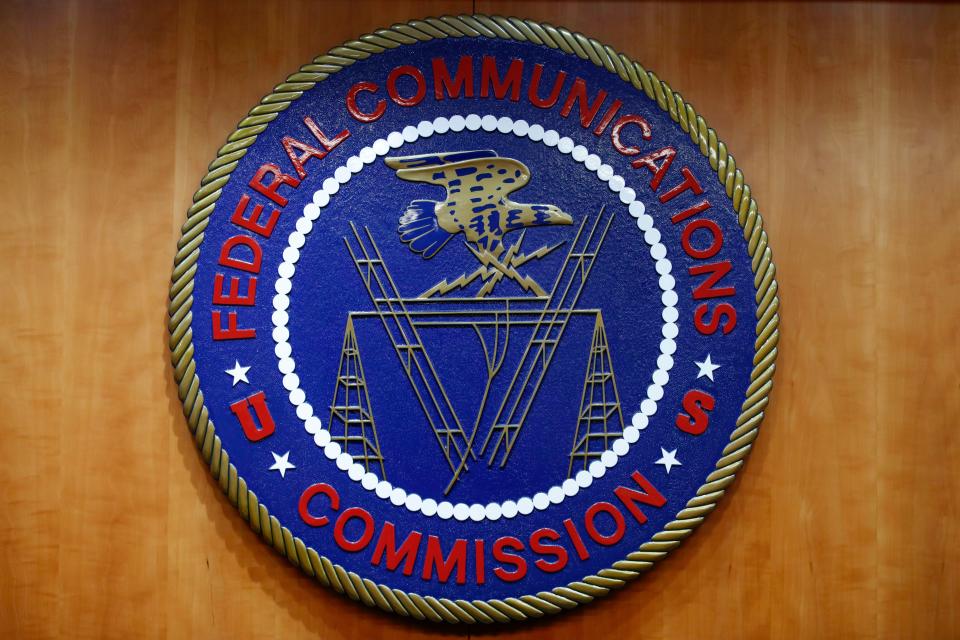Robocalls with voices generated by artificial intelligence are now illegal, according to a ruling issued Thursday by the Federal Communications Commission.
The ruling, which falls under the existing Telephone Consumer Protection Act of 1991, “protects consumers from unwanted calls made using an artificial or prerecorded voice,” federal officials said.
“In relevant part, the TCPA prohibits initiating ‘any telephone call to any residential telephone line using an artificial or prerecorded voice to deliver a message without the prior express consent of the called party’ unless a statutory exception applies or the call is exempted by rule or order by the commission,” the ruling states.
“The TCPA also prohibits, without the prior express consent of the called party, any non-emergency call made using an automatic telephone dialing system or an artificial or prerecorded voice to certain specified categories of telephone numbers including emergency lines and wireless numbers,” the ruling states.
The federal ruling comes as an investigation continues into fake President Biden robocalls sent out last month encouraging voters not to vote in the presidential primary election in New Hampshire.
Texas-based Life Corporation and a person named Walter Monk have been linked as the source of the fake robocalls in the Granite State, New Hampshire Attorney General John Formella said Tuesday.
Authorities said this week they are issuing a cease-and-desist order to Life Corporation for violating state election law that “prohibits any person from engaging in voter suppression by knowingly attempting to prevent or deter another person from voting or registering to vote based on fraudulent, deceptive, misleading, or spurious grounds or information,” Formella said.
The Jan. 21 robocalls were received by “numerous New Hampshire residents,” and “directly encouraged recipients not to participate in the New Hampshire Primary,” said Formella, whose office launched an investigation into these calls.
The cease-and-desist order requires Life Corporation to “immediately cease” violating this and all other New Hampshire election laws, and the order notes that “the Election Law Unit reserves the right to take further enforcement actions based on conduct preceding the date of the order,” Formella said.
That investigation involved state and federal agencies including the Anti-Robocall Multistate Litigation Task Force, which is a bipartisan task force made up of 50 state attorneys general, and the Federal Communications Commission Enforcement Bureau, Formella said.

In a statement Thursday, FCC Commissioner Geoffrey Starks called unwanted robocalls “a scourge on our society.”
‘‘I am particularly troubled by recent harmful and deceptive uses of voice cloning in robocalls,” Starks said. “Real world examples here are no longer theoretical. Bad actors are using voice cloning – a generative AI technology that uses a recording of a human voice to generate speech sounding like that voice – to threaten election integrity, harm public safety, and prey on the most vulnerable members of our society.”
“In January, potential primary voters in New Hampshire received a call, purportedly from President Biden, telling them to stay home and “save your vote” by skipping the state’s primary,” Starks said. “The voice on the call sounded like the President’s, but of course it wasn’t. Those were voice cloning calls. The use of generative AI has brought a fresh threat to voter suppression schemes and the campaign season with the heightened believability of fake robocalls.”
Starks also cited other examples of AI-generated voices being used to deceive people.
“Another example: parents have been scared half to death hearing their child’s voice on the other end of the line, saying they’ve been kidnapped, or need money to get out of trouble,” Starks said. “In actuality, their children are safe and unaware of the chaos. Finally, fraudsters continue to target the elderly through ‘grandparent’ scams, but voice cloning adds a frightening new dimension to these attacks on those who may be least able to detect them.”
“These are real attacks causing harm and confusion, and given their effectiveness, we can assuredly expect more to come,” Starks said.
This is a developing story. Check back for updates as more information becomes available.
Download the FREE Boston 25 News app for breaking news alerts.
Follow Boston 25 News on Facebook and Twitter. | Watch Boston 25 News NOW
Signup bonus from





